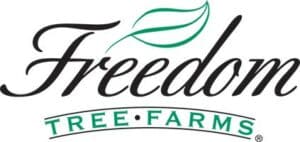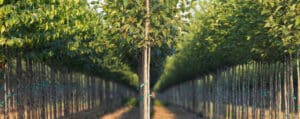Streamlining Costs and Inventory Management: How Freedom Tree Farms Achieved Success with Velosio and Microsoft Technology
Learn how Velosio helped Freedom Tree Farms streamline costs and inventory management using Microsoft technology.
Learn how Velosio helped Freedom Tree Farms streamline costs and inventory management using Microsoft technology.
Table of Content

Founded in 1984 in Pelham TN, Freedom Tree Farms, provides America’s largest retail corporations, fruit growers, top garden centers, wholesale nurseries, and more with numerous varieties of the highest quality bareroot and container-grown fruit trees and berry plants. The exception in the industry, Freedom Tree Farms grows buds, and grafts its trees on over 550 acres of beautiful Tennessee farmland. Freedom Tree Farms is also a registered grower, budder, and grafter for many rare varieties of patented trees and plants. The organization regularly provides its expertise to assist in bringing university breeder trials and initial introductions of new trees and plants to the market. Learn more at www.freedomtreefarms.com.
Freedom Tree Farms, a small, family-owned business, was acquired by Chenmark, with the goal of preserving the organization’s legacy and positioning it for longterm success. The Chenmark team cares deeply about preserving the legacy of the companies they acquire and feel a tremendous responsibility not just to remember a business’s origin story, but to honor it by ensuring success moving forward. Upon acquiring Freedom Tree Farms, Matias Reyna, Vice President of Chenmark, was named CEO of the organization. He soon discovered that inventory management would be first on the list of improvements to be made. Freedom Tree Farms used QuickBooks and relied heavily on a myriad of spreadsheets for tracking inventory. Understanding costs of production of trees was a challenge because data was dispersed across different systems and spreadsheets. Calculating the cost of production per tree requires an understanding of not only the wholesale cost, but the labor, nutrients, and additional expenses. Having that information in real-time was a priority for the team. Tree and shrub pricing is sometimes determined by what the market will bear, but also needs to be based on building profitability for each varietal. “Many times, a big impact is made when the lowest performing SKU is eliminated, but we couldn’t determine what that was,” explains Reyna.
Based on the absence of any central systems, the team at Freedom Tree Farms knew the first steps would require implementation of an enterprise resource planning (ERP) system to improve visibility into inventory at any given point in the production cycle. This would help the organization determine how much they’d need to produce based on demand, and what to expect their yield loss to be for each crop. Moreover, this would help the team identify those products that were profitable and should continue being produced, and those that could be eliminated. Freedom Tree Farms was also looking for strategic insights to help salespeople pivot from one product to another when necessary due to stock positions, or to maximize profitability.
Freedom Tree Farms, like many small businesses, develop institutional knowledge and gut instinct over time that can be used to make decisions on what to produce when and how much they’ll need or how much they have on hand of each product, that they hardly need systems. It’s only when it comes time to transition the business that the lack of available data becomes apparent. And with a goal in mind of growing the business 10% year-over-year, the company didn’t know how much to plant, how much space and resources they would need to expand, and what the yield would be for each SKU. It was a bit of a stab in the dark without systems in place. “There’s no question that you mess up when trying to track all of this in spreadsheets,” says Reyna. Reyna explains, “As someone who was never previously involved in farming, technology just serves as a great sort of leveler. I can use numbers to give me direction in place of experience that would take me 30 years to get to the same point.”

Producing over 600,000 trees with a two-to-three-year growth cycle, the team at Freedom Tree Farms knew they would need improved information to help make the right business decisions once the original owners were no longer around. More information was needed to place orders intelligently, tag products properly, and keep track of inventory. The team also recognized that this inventory was at risk for disease, so time and care became important factors as well. “What is the business impact of having a hurricane hit a 30-year crop and wiping it out, for example?” says Reyna. “What kind of insurance do we need to buy to cover a loss like that?” Other considerations included space and personnel planning. How much space would they need to store inventory once it arrived? How many of the people who had worked at Freedom Tree Farms for, in some cases, 20-30 years would remain, how many would leave, and how many would need to be replaced? “With a seasonal business, staff planning is more complicated,” says Reyna. Qualitative and quantitative analytics would help make those decisions.
Freedom Tree Farms investigated a number of different ERP systems for six months and finally landed on Microsoft and partner Velosio. Velosio’s system demonstrations convinced them that the platform fulfilled their requirements, provided an updated and modern interface, included a clear vision for the future of the product, and would be very easy for staff to use now and in the future. “The big thing we wanted from a system was to be able to get margin by SKU and by customer, and we could see Microsoft Dynamics 365 Business Central would be more tailored to our business,” says Reyna.

Early in the implementation, Reyna reported, “It’s already helped me a lot to rethink the business in a different way. Just going through the process helps you think about manufacturing, accounting and reframes how the business will fit into this sort of system.” When asked about his vision for success of the solution, he observes, “It will give us a very good way of understanding what our business is going to look like in the next year. From there, I can plan so much better.”
With Microsoft Dynamics BC, Freedom Tree Farms now can more efficiently manage and sell inventory. “As we grow year over year, material will not be left unsold – that is a very tangible benefit,” says Reyna. “If I know it is there, I can sell it, which gives us an immediate return on investment,” continues Reyna. Freedom Tree Farms can determine what value they have in their crops as the trees and shrubs grow, even though they are not yet finished goods. The team also has a much better understanding of costing by tree/shrub, and can determine the correct pricing models, as well as which varietals are profitable, and plant more of those. Freedom Tree Farms can also determine what trees/shrubs will be available to sell after the growing cycle and can account for things like an increase in fertilizer pricing (much of its fertilizer supply was affected by the ongoing conflict in Ukraine). Freedom Tree Farms is utilizing the easy-to-use reporting tool built specifically for the Microsoft Dynamics 365 BC Online, Cosmos. Cosmos produces reports in Excel, allowing Freedom Tree Farms to easily drag and drop in customer sales information to build sophisticated reports. The company also uses Cosmos for data warehousing and builds Power BI reports for further analysis. “I now have a system that tells me if I want to grow by 30%, how much land I need to buy, and how many people I need, it’s a win-win,” concludes Reyna.
Talk to us about how Velosio can help you realize business value faster with end-to-end solutions and cloud services.